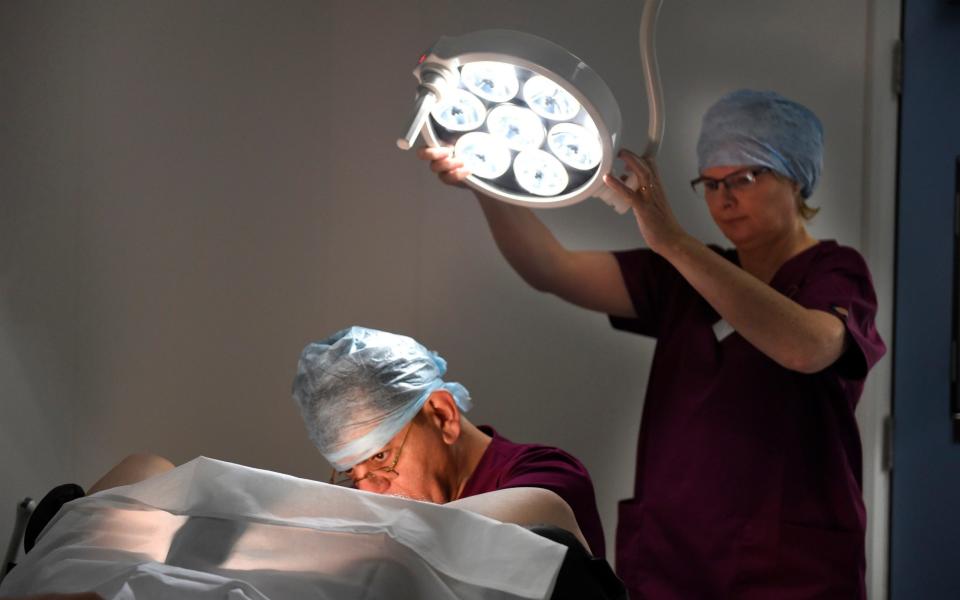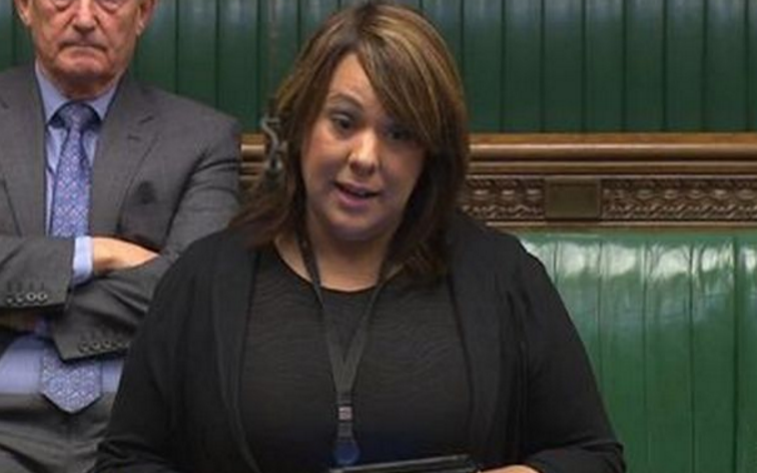Women with painful gynaecological problems told by GPs: 'It's all in your head'

Nearly half of women need to visit their GP 10 times before being diagnosed with common gynaecological complaints, with doctors often telling patients their symptoms are ‘all in their head,’ MPs have found.
A report by the All-Party Parliamentary Group on Women’s Health (WHAAPG) found that doctors are failing to treat women with dignity or respect when it comes to female issues.
Some women reported feeling they were ‘going mad’ after being continually told by their GPs that there was ‘nothing wrong,’ despite years of painful symptoms.
Around two million women in Britain - one in 10 - suffer from the condition endometriosis, where womb tissue grows outside the uterus, leading to painful bleeding, stomach aches and potential infertility.

Yet a survey of 2,600 women found that 40 per cent had to visit their GP ten times or more times before they were referred to a gynaecologist, while one in three was forced to seek a second opinion.
More than two thirds of women got so little information from their doctor they had to look for help online, while around one in eight suffering endometriosis or fibroids had to wait between one and two years for a correct diagnosis.
“I was shocked by some of the stories we heard,” said Paula Sherriff MP, chair of WHAAPG who herself was told she should ‘just put up with’ the pain she experienced after developing endometriosis.
“I am sure this sort of thing would not happen if men had periods. The statistics in this report show that women are all too often dismissed by healthcare professionals when discussing their symptoms and choices.
“The fact that almost 50 per cent of women did not feel that they were treated with dignity and respect is appalling.
“It’s important that we lose the taboo about talking about these conditions so women can feel empowered.”

Mrs Sheriff said it was difficult to break the taboo surrounding women’s issues, particularly in Parliament, where she said male MPs still ‘scuttle off’ when female problems are discussed.
The WHAAPG is recommending that GPs are specifically trained in recognising endometriosis and say surgeries should offer women written information about gynaecological issues which spell out conditions and treatment options.
They are also calling for better education for teenage girls in secondary school so they can tell when symptoms are not part of a normal monthly cycle.
Endometriosis patient Amy Maidment, 23, of Oxford, said: “I suffered terribly trying to get an accurate diagnosis and then information on all the possible options for my treatment.
“At times I felt I was fighting a losing battle, my symptoms not always being believed and sometimes implications it was all in my head.
“Even after diagnosis I have struggled to understand what my options are for treatments, and the side effects or long term health implications of different treatments might be. I’ve waited months and months for surgery, I don’t even have a date yet for when that will be.”
Others described a ‘lack of understanding’ from doctors which led to years of needless pain and anxiety while conditions were left untreated.
“It shouldn’t be a battle to see a gynaecologist,” said Sarah Hutchins who suffered from fibroids, a condition where non-cancerous growths develop in or around the womb.
“It shouldn’t be a battle to see a gynaecologist Women need to know how to spot that something is ‘wrong’ and be supported to get help.”

 Yahoo News
Yahoo News 
